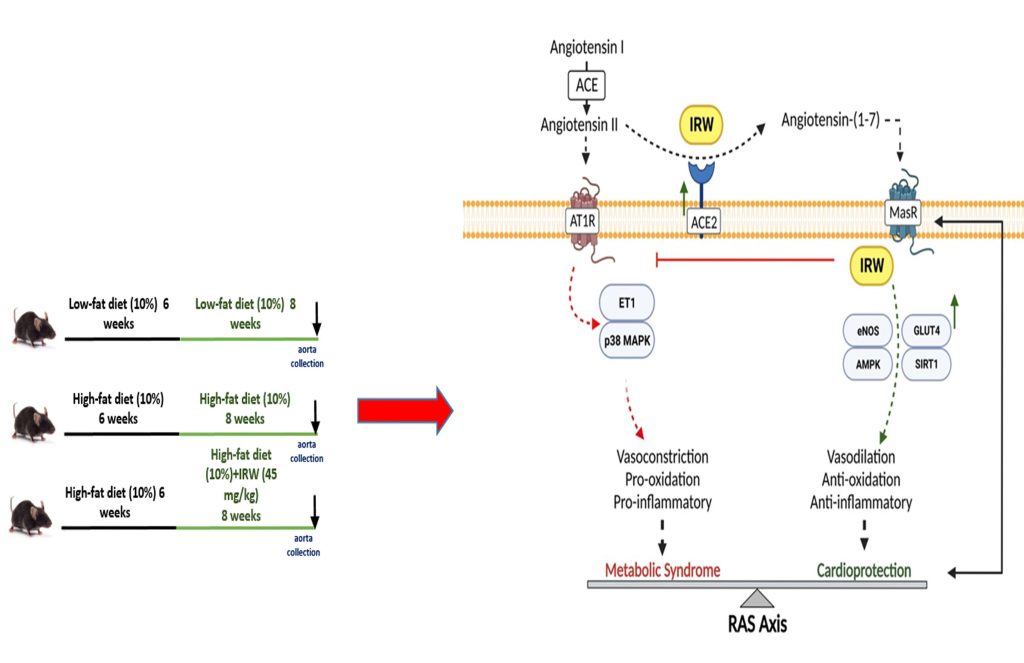Submission 2023
| Submitted by: | Fatemeh Ashkar |
| Department: | Agricultural, Food & Nutritional Science |
| Faculty: | Agricultural, Life & Environmental Sciences |
This study aims to investigate the effect of tripeptide IRW on the local renin–angiotensin system (RAS), particularly angiotensin-converting enzyme 2 (ACE2), and their association with signaling pathways in the aorta of a high-fat-diet (HFD)-induced insulin-resistant mouse model. C57BL/6 mice were fed HFD (45% of the total calories) for six weeks, and then IRW was added to the diet (45 mg/kg body weight (BW)) for another eight weeks. ACE2 mRNA expression and protein level(s) were increased, while angiotensin II receptor (AT1R) and angiotensin-converting enzyme (ACE) protein abundance was significantly reduced in the aorta of HFD mice treated by IRW. IRW supplementation also improved glucose transporter 4 (GLUT4) abundance alongside AMP-activated protein kinase (AMPK), Sirtuin 1 (SIRT1), and endothelial nitric oxide synthase (eNOS) expression. IRW downregulated the levels of endothelin 1 (ET-1) and p38 mitogen-activated protein kinases (p38 MAPK). In conclusion, this study provided new evidence of the regulatory role of IRW on the aortic ACE2 against metabolic syndrome in an HFD-induced insulin-resistant model.

